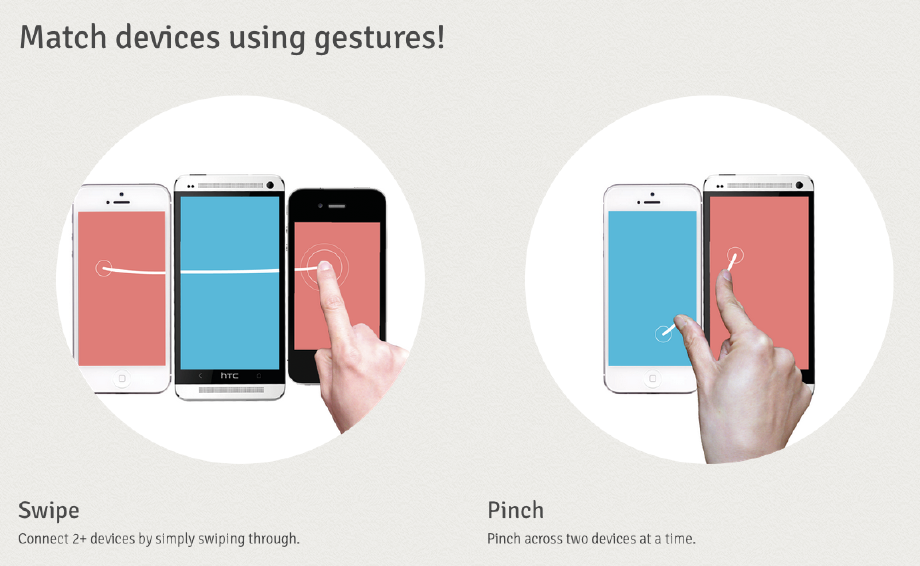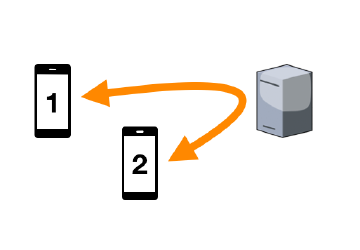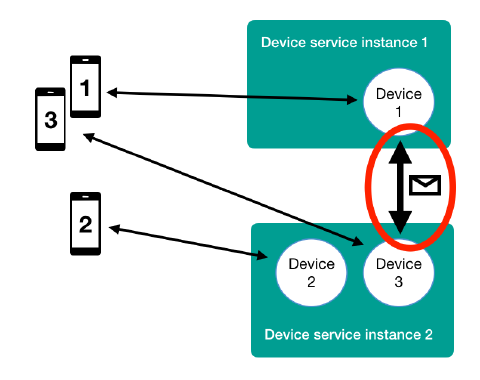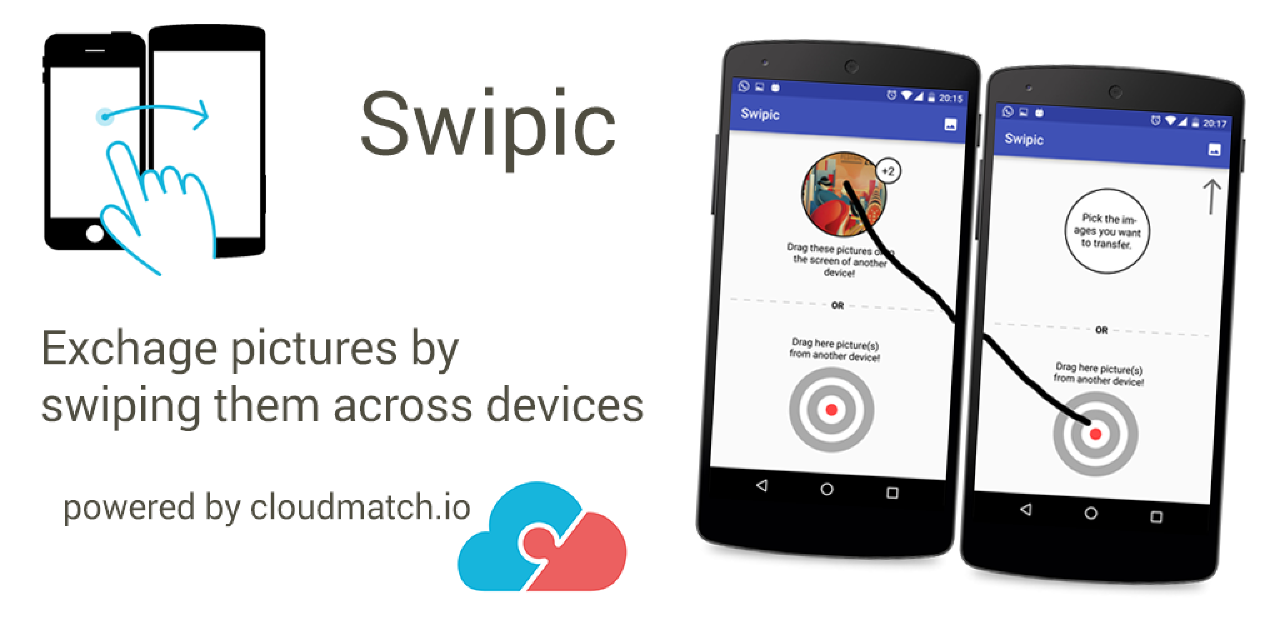2013 to 2014 - CloudMatch
The Idea
CloudMatch was a side-project that I tried building a company around. Born along the lines of the mobile revolution, the idea was simple: enable cross-gesture communication between two touchscreen devices. The development of this product is the reason why I discovered Scala, Akka and the ecosystem of reactive systems that I fell in love with.

Business-wise, we envisioned a lot of different use-cases and closed a few fun collaborations - we even had one paying customer!- but no use-case was compelling enough to sustain a proper business. Ultimately, unable to find a good product-market fit, we abandoned the idea and moved on. Some ideas that we explored:
- Banking sector (money transfer)
- Exchange of pictures / business card / social contacts / used items
- Educational games
- Videogames (the only paying customer)
These two videos show a couple of use-cases that we built.
What remains is an incredible roller-coaster experience and a very solid technical achievement. One of my most successful conference talk ever was based on the CloudMatch engine that I built for scalability and resilience.
Cloud-Native Architecture
The engine has two main goals:
- establish a link between the matched devices
- allow a fast channel for data exchange
While there would be ways to make two devices communicate directly with one another, the most generic solution would be to have a common service facilitating these operations. This would allow the magic to happen in the widest range of situations, whether devices are on WiFi or mobile data, bluetooth, or any other form of connectivity.
The question is then – what should this service look like? For starters, we need this service to scale A LOT. Millions of concurrent users will use our system, we know that. We need to embrace distribution. The basic choice is thus between a stateless or a stateful service, where the first choice implies delegating state to a persistence layer. This would quickly become a nightmare of reads and writes - incredibly slow and incredibly expensive too.
A stateful service seems the only viable architecture. One where two devices can live on any instance of the distributed service and communicate directly, like illustrated in the below-right image.


Server Implementation
Akka is a toolkit for the JVM that makes building such distributed services its very mission, and that is how I first came to learn about its existence. Actors are the fundamental unit of computation in Akka: stateful entities who live in memory and can message each other directly. Akka provides a powerful abstraction that makes this possible even when two actors are on different nodes on different physical machines.
This is exactly what my engine needs. Each device using CloudMatch is represented by an Actor, which keeps track of its state. For example, whether it’s paired to another device: this Scala code snippet shows how an actor stores the reference to the actor representing the matched device when receiving a message with such information.
var matchedDevice: Option[ActorRef] = None
override def receive: Receive = {
case YouMatchedWith(device) =>
matchedDevice = Some(device)
logMatched(self, device)
}A complete working version of this product is available on GitHub. This product has also being the foundation for a series of talks I did back in 2018, together with Adam Sandor, on how Akka is the perfect application-level companion for Kubernetes. Lightbend, the company behind Akka, invited me to give it as a webinar on their official channel.
Mobile Clients
Any app that wanted to use the CloudMatch features could do so using the CloudMatch SDK, an open-source library for both iOS and Android. Here is some more memorabilia from back then to close this portfolio entry.
